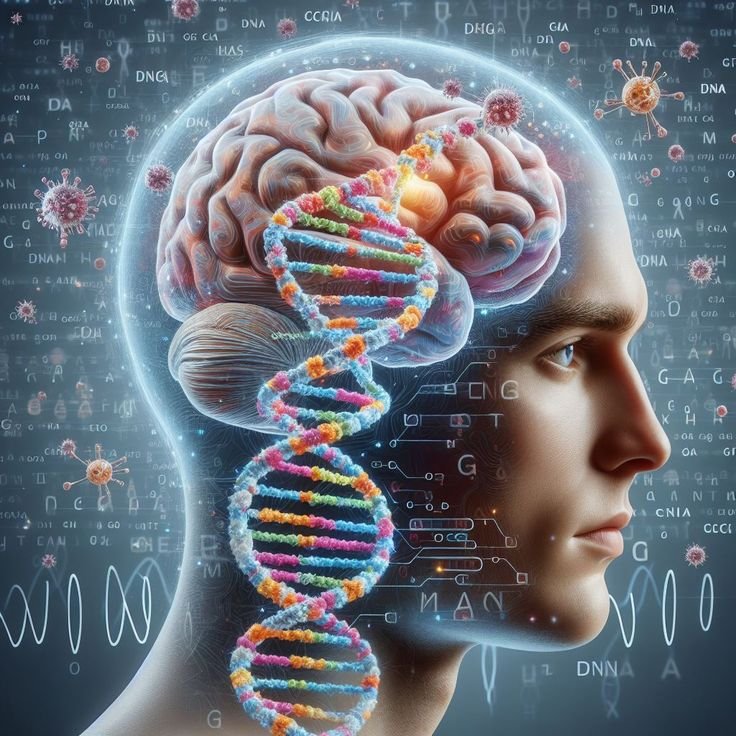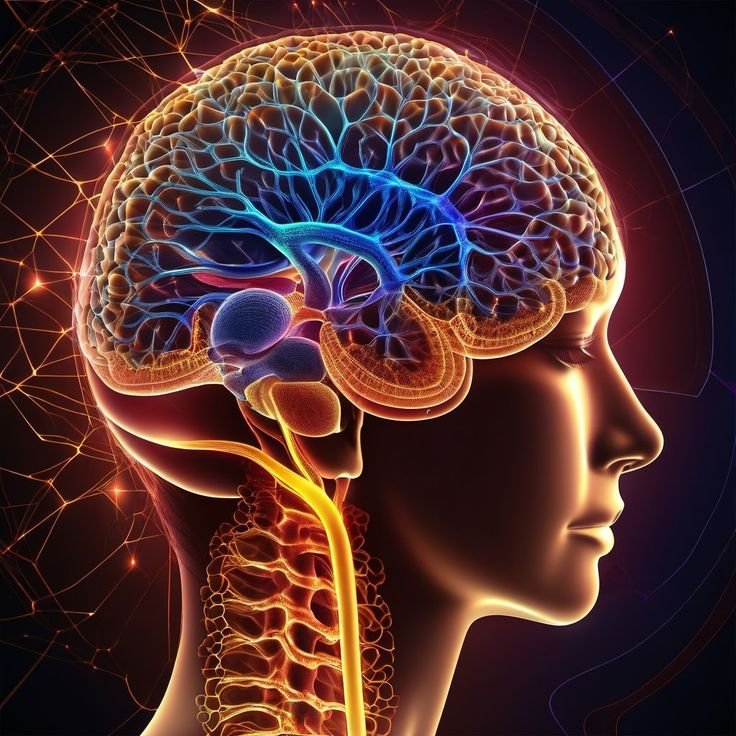Neurological diseases are conditions that affect the brain, spinal cord, and nerves. These disorders can impact a person’s movement, senses, and cognitive functions, and can have significant effects on quality of life. With the advancements in medical technology, platforms like doctorhub360.com neurological diseases provide a valuable resource for patients and healthcare providers. This article will delve into the nature of neurological diseases, how they are diagnosed, and the role doctorhub360.com neurological diseases plays in offering solutions and support.
What Are Neurological Diseases?
Neurological diseases are a broad category of disorders that impact the nervous system, which includes the brain, spinal cord, and peripheral nerves. These diseases can be either congenital (present at birth) or acquired, with symptoms ranging from mild to severe. The cause of neurological diseases may be genetic, autoimmune, infectious, or environmental.
Common neurological diseases include conditions like Alzheimer’s disease, Parkinson’s disease, epilepsy, multiple sclerosis, and stroke. Many of these disorders are chronic and progressive, meaning that they worsen over time and require ongoing management.
Types of Neurological Diseases
Understanding the different types of neurological diseases is crucial in recognizing symptoms and seeking early intervention. Some of the major categories of neurological diseases include:
- Neurodegenerative Diseases Neurodegenerative diseases involve the progressive degeneration of nerve cells, often leading to a decline in cognitive and motor functions. Doctorhub360.com neurological diseases offers a wealth of information on conditions such as Alzheimer’s disease, Parkinson’s disease, and Huntington’s disease. These diseases often begin with mild symptoms but gradually lead to more severe cognitive and motor impairments.
- Stroke and Cerebrovascular Disorders A stroke occurs when there is a sudden disruption in blood flow to the brain, resulting in the death of brain cells. Doctorhub360.com neurological diseases highlights the importance of early intervention in preventing long-term disabilities from stroke. Stroke-related disorders can cause paralysis, speech difficulties, and cognitive impairments, making early diagnosis and rehabilitation critical for better outcomes.
- Epilepsy and Seizure Disorders Epilepsy is a chronic neurological disorder characterized by recurrent seizures. Seizures are caused by abnormal electrical activity in the brain and can vary in severity and frequency. Doctorhub360.com neurological diseases provides information on the different types of seizures and treatment options, including medication and lifestyle changes.
- Autoimmune Neurological Diseases Autoimmune diseases occur when the immune system mistakenly attacks healthy cells in the body. In neurological autoimmune diseases like multiple sclerosis, the immune system attacks the protective covering of nerve fibers, leading to inflammation and nerve damage. Doctorhub360.com neurological diseases offers valuable insights into the diagnosis and management of these conditions, helping patients better understand how to manage flare-ups and symptoms.
- Peripheral Nerve Disorders Peripheral nerve disorders affect the nerves outside the brain and spinal cord. Conditions such as peripheral neuropathy, carpal tunnel syndrome, and Guillain-Barré syndrome are examples of these disorders. These diseases can result in numbness, tingling, and pain, and doctorhub360.com neurological diseases provides resources for individuals living with these conditions to manage their symptoms and seek appropriate care.
Symptoms of Neurological Diseases
The symptoms of neurological diseases can vary greatly depending on the specific condition and the part of the nervous system that is affected. However, some common symptoms that may indicate the presence of a neurological disease include:

- Chronic headaches or migraines
- Memory loss or difficulty concentrating
- Muscle weakness or paralysis
- Coordination problems or difficulty walking
- Seizures or unusual movements
- Sensory changes, such as numbness or tingling
- Speech or vision difficulties
Early detection is critical for effective management and treatment, and doctorhub360.com neurological diseases emphasizes the importance of recognizing these signs and consulting a healthcare provider.
Diagnosis of Neurological Diseases
Diagnosing neurological diseases often involves a combination of medical history review, physical examination, and advanced diagnostic tests. Depending on the suspected condition, doctors may utilize the following diagnostic tools:
- MRI (Magnetic Resonance Imaging)
- CT Scan (Computed Tomography)
- EEG (Electroencephalogram)
- Blood tests
- Neurological exams
These tests help healthcare professionals visualize the brain, spinal cord, and nerves, and assess their function. A precise diagnosis is essential in creating an effective treatment plan, and doctorhub360.com neurological diseases can be a great resource for understanding the diagnostic process and what to expect during medical evaluations.
Treatment Options for Neurological Diseases
Treatment for neurological diseases varies depending on the condition, its severity, and the individual patient’s needs. While some conditions are manageable with medication and therapy, others may require surgical interventions. Here are some common treatment options:
- Medication Medications can help manage symptoms, slow disease progression, or correct imbalances in the brain. For instance, doctorhub360.com neurological diseases offers valuable insights into medications used for epilepsy, Parkinson’s disease, and multiple sclerosis. Antidepressants, pain relievers, and anti-inflammatory drugs are commonly prescribed for a variety of neurological conditions.
- Physical Therapy Physical therapy plays an essential role in the rehabilitation of patients with neurological diseases. It helps improve motor skills, strengthen muscles, and restore mobility. Doctorhub360.com neurological diseases emphasizes the importance of tailored physical therapy programs for those recovering from strokes or managing degenerative conditions.
- Surgical Interventions In some cases, surgery may be necessary to treat certain neurological conditions. For example, deep brain stimulation (DBS) is often used to manage the symptoms of Parkinson’s disease, while surgery may be required to remove brain tumors or treat conditions like epilepsy. Doctorhub360.com neurological diseases provides information on cutting-edge surgical treatments and their potential outcomes.
- Lifestyle Changes Adopting a healthy lifestyle can significantly improve the quality of life for individuals with neurological diseases. Regular exercise, a balanced diet, and adequate rest are essential for brain health. Doctorhub360.com neurological diseases offers practical tips and strategies for integrating these changes into daily life to support better neurological function.
- Alternative Therapies Some patients may benefit from alternative therapies, such as acupuncture, massage, or herbal remedies, alongside conventional treatments. While these options can provide symptom relief, it is important to consult healthcare providers before trying them. Doctorhub360.com neurological diseases discusses various alternative therapies and their potential benefits.
Living with Neurological Diseases
Living with a neurological disease can be challenging, but with the right support, individuals can continue to lead fulfilling lives. Doctorhub360.com neurological diseases provides essential resources, including support groups, counseling, and educational tools for patients and caregivers. These resources offer guidance on managing emotional and psychological challenges, as well as tips for maintaining independence and coping with changes in daily life.
For families and caregivers, doctorhub360.com neurological diseases offers advice on how to provide the best care while also ensuring their own well-being. Understanding the nature of the disease, recognizing when professional help is needed, and learning how to communicate effectively with loved ones who have neurological disorders are all important aspects of caregiving.
Prevention of Neurological Diseases
While many neurological diseases are genetic or related to aging, certain lifestyle choices and preventive measures can help reduce the risk of developing some conditions. Doctorhub360.com neurological diseases provides valuable insights into how individuals can protect their brain health. Preventive measures include:
- Exercising regularly
- Eating a healthy, balanced diet
- Getting enough sleep
- Managing stress
- Avoiding smoking and excessive alcohol consumption
- Protecting the head from injury (e.g., wearing helmets)
While it may not be possible to completely prevent neurological diseases, these strategies can help promote brain health and potentially reduce the risk of disease onset.
Future Directions in Neurology
Advancements in research and technology are continually improving the understanding of neurological diseases and how they can be treated. Cutting-edge treatments, such as gene therapy, stem cell therapy, and advanced neuroimaging techniques, hold the potential to revolutionize the way neurological diseases are diagnosed and treated. Doctorhub360.com neurological diseases keeps individuals up to date with the latest research developments and offers hope for the future of neurology.
Conclusion
Neurological diseases represent a significant challenge for patients, caregivers, and healthcare providers. With the vast amount of information and support available on platforms like doctorhub360.com neurological diseases, individuals are empowered to make informed decisions about their health and well-being. Early diagnosis, effective treatments, and the right support system can significantly improve outcomes for those living with neurological conditions. By staying informed and taking proactive steps, patients and their families can manage neurological diseases and improve their quality of life.

